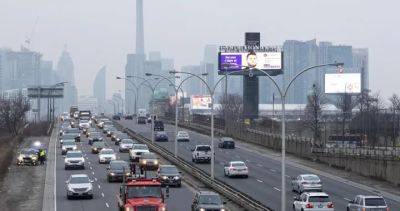No water, no oil: How the parched western provinces could hamper the oilpatch
Persistent and severe drought conditions across Western Canada could have a devastating effect on the oil and natural gas sector, which has drilling operations in some of the driest areas, according to a new report by Deloitte.
Limited water supply could have significant effects on the production of oil and gas, the report warns, and the timing couldn't be worse for the industry as many companies are wanting to increase production and drilling with new export pipelines and facilities nearing completion.
The past several years have been parched in parts of Western Canada, but there is extra concern this year because of the below average snowpack in the mountains.
«It's not going to be as simple to just pipe fresh water in. You may need to move it and truck it to different locations,» said Andrew Botterill, an energy analyst with Deloitte Canada, in an interview with CBC News.
In B.C., the provincial energy regulator has warned snowpack levels were only 72 per cent of the historical average.
Trucking in water and recycling water will both result in more «expensive and complicated» operations for companies, he said.
Many communities are already on high alert about a devastating drought and possible impacts on drinking water and availability for industries, such as agriculture.
It's the fourth year of drought conditions and regulators have warned industry about potential water restrictions this summer. The amount of water used to produce oil and gas can vary, with drilling activity in some regions using up to 10 times more water compared to other areas, depending on geological factors, according to the Alberta Energy Regulator.
The regulator is already restricting how much water oilsands and other energy projects can withdraw from






